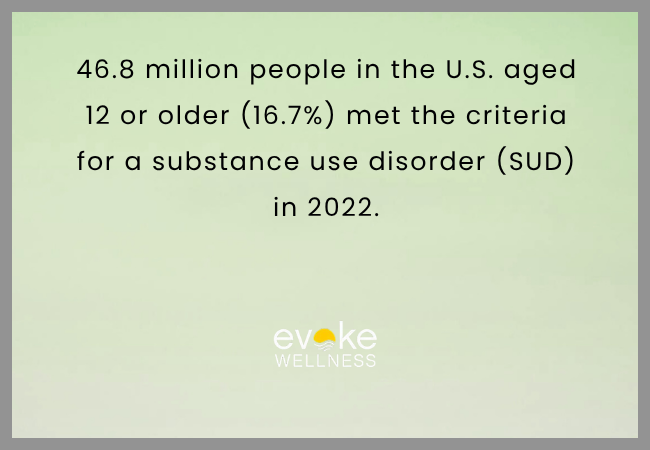The decision to begin recovery from drug or alcohol addiction is courageous, but it’s also one that can come with understandable fear, especially around the first and often most physically demanding stage: medical detox. If you’re wondering what to expect during this process, you’re not alone. Many individuals feel anxiety before entering detox, unsure of what will happen, how they’ll be supported, and what kinds of symptoms they might experience.
Medical detox is a structured and supervised process designed to help your body safely eliminate substances while minimizing withdrawal symptoms. It’s not simply about stopping drug or alcohol use—it’s a critical, carefully monitored step that sets the stage for long-term recovery. At Evoke Wellness in Massachusetts, we prioritize safety, comfort, and dignity for every person who walks through our doors seeking a new beginning.
In this step-by-step guide, we’ll walk through exactly what you can expect from medical detox—from the initial assessment to the transition into continued treatment—so you can feel more prepared and empowered for your recovery journey.
Step 1: Initial Evaluation and Medical Assessment
When you arrive at a detox facility, the first step is a comprehensive medical and psychological assessment. This evaluation includes a full health history, current physical condition, mental health status, substance use history, and details such as frequency, duration, and types of substances used. This information helps the medical team tailor your detox protocol to your unique needs.
You may also undergo blood tests, urine screening, and other diagnostics to evaluate organ function and check for co-occurring medical conditions. These initial assessments are not about judgment—they’re about creating the safest, most personalized detox experience possible.
This is the point where a formal detox plan is created. Depending on the substance, severity of dependence, and any co-occurring mental or physical conditions, your care team may recommend various interventions, including medications to manage symptoms or prevent complications.
Step 2: Stabilization – The Heart of Detox
After your evaluation, the stabilization phase begins. This is where the bulk of medical detox occurs, and it usually lasts anywhere from a few days to a week or more, depending on the substances involved. During this time, trained medical professionals will monitor your vital signs around the clock to ensure your safety.
If you’re detoxing from alcohol, benzodiazepines, or opioids, this stage is especially crucial, as withdrawal symptoms from these substances can be intense or even life-threatening if not managed properly. Fortunately, at Drug and Alcohol Detox Centers in Massachusetts, patients receive 24/7 medical support and symptom-specific care to ease the discomfort of withdrawal and reduce risks.
Medications such as buprenorphine, methadone, or anticonvulsants may be used to manage symptoms like nausea, tremors, insomnia, anxiety, and cravings. Nutritional support and IV fluids may also be provided to prevent dehydration and promote healing.
This is often the most physically intense phase of recovery, but it is also the most transformative. Many individuals report feeling clearer, more present, and physically stable as detox progresses. While it may be challenging, it is also incredibly rewarding to move through this step with the help of compassionate, professional care.
Step 3: Emotional Support and Mental Health Care
Detox isn’t just a physical experience—it also takes a psychological toll. Anxiety, depression, mood swings, and emotional distress are common as the brain begins to rebalance its chemistry without drugs or alcohol. That’s why many detox centers provide integrated mental health support during this time.
At Medical Detox Program Treatment Centers in Massachusetts, therapists and counselors are available to support clients with therapeutic check-ins, stress-reducing techniques, and early-stage motivational interventions. While intensive therapy typically begins after detox, these early conversations can begin to uncover the root causes of addiction, helping individuals gain clarity and insight.
Additionally, peer support plays a critical role. Being surrounded by others who are on a similar path can reduce feelings of isolation and shame, while creating opportunities for connection and encouragement.
Step 4: Preparation for the Next Phase of Treatment
Detox alone is not a cure for addiction. Once the body is cleared of substances and stabilized, the next step is transitioning into a treatment program that addresses the psychological, behavioral, and emotional aspects of addiction.
This is where case management and treatment planning come in. A dedicated team member will work with you to determine the best next step in your recovery journey. For some, this means continuing into a Residential Treatment Center in Massachusetts, where daily structure and clinical support help build strong foundations. For others, a Partial Hospitalization or Intensive Outpatient Program may be more appropriate, depending on the level of care needed and personal circumstances.
It’s important that this transition be seamless. At Evoke Wellness, discharge planning begins early in detox to ensure there’s no gap in care and to help clients feel fully supported as they move forward.
Step 5: Comfort, Environment, and Holistic Amenities
Detox is an inherently challenging process, but the environment in which it occurs can make a significant difference in comfort and outcomes. Facilities that offer high-end amenities, private rooms, chef-prepared meals, and serene surroundings are not merely luxurious—they contribute to reduced stress, better sleep, and a more positive experience overall.
A Luxury Rehab Center Massachusetts offers just that—a calm, supportive, and dignified space where clients can begin healing in comfort. Holistic services like yoga, mindfulness meditation, massage therapy, and nutritional counseling are often available, helping clients reconnect with their bodies and minds in safe and nurturing ways.
This approach isn’t about indulgence—it’s about creating an environment where healing can truly take root.
Step 6: The Role of Family and Loved Ones
Addiction affects the entire family, and recovery often requires the involvement of loved ones. While detox is a time of stabilization, many treatment centers also offer family outreach or education early on. Though visitation may be limited during the first few days of detox for clinical reasons, communication is typically opened as the client stabilizes.
Family therapy, when appropriate, may begin soon after detox to help repair damaged relationships and build new patterns of support. This creates a stronger recovery foundation and promotes long-term success.
Why Choose Evoke Wellness?
Starting the detox process can be overwhelming—but choosing the right team to guide you through it can change everything. At our center, we understand that detox is more than just a clinical procedure; it’s the foundation for rebuilding a healthier, more fulfilling life. That’s why we’ve created a space where medical expertise meets genuine compassion.
Our highly trained staff includes doctors, nurses, and licensed mental health professionals who specialize in addiction care. Each client receives a personalized detox plan tailored to their physical needs, mental health history, and long-term recovery goals. We ensure round-the-clock monitoring to manage withdrawal symptoms safely while providing therapeutic support that eases emotional distress.
Comfort and dignity are central to everything we do. Clients benefit from a calming environment, healthy meals, restorative wellness practices, and holistic care options that support mind-body healing. We also believe in empowering each person through education and planning for the next steps in treatment, helping lay a strong foundation for sustained sobriety.
As part of our full continuum of care, those completing detox have access to our Intensive Inpatient Program in Massachusetts, which provides continued therapeutic support and structure. Whether you’re here for the first time or returning to treatment after relapse, our goal is to meet you where you are and help you move forward with strength and clarity. Choosing Evoke Wellness at Cohasset means choosing a place where you’re not just treated—you’re truly cared for.
Conclusion
Detox isn’t just a medical step—it’s a courageous act of choosing change. While withdrawal can bring discomfort and fear, it also marks the beginning of transformation. In a safe and supportive environment, detox helps clear the fog of addiction and prepares your body and mind for lasting recovery.
Our team knows how vulnerable this phase can feel, and that’s why we offer 24/7 care with compassion at the core. With the right medical support, emotional guidance, and personalized treatment, clients don’t just endure detox—they grow through it. Each day brings you closer to stability, self-awareness, and the confidence to continue healing.
As one of the trusted Detox Program Treatment Centers in Massachusetts, Evoke Wellness at Cohasset offers the expertise and compassion to guide your first steps toward freedom. Call us today at 866.931.6429 and let this be the moment everything starts to change.
Frequently Asked Questions (FAQs)
What is medical detox and why is it necessary?
Medical detox is the process of safely removing harmful substances from the body under medical supervision. It helps manage withdrawal symptoms and reduces health risks associated with stopping drug or alcohol use abruptly.
How long does the detox process typically take?
The detox process usually lasts between 5 to 10 days, depending on the substance used, the length and intensity of use, and individual health factors. Some clients may need a longer or shorter duration for full stabilization.
What substances require medical detox?
Common substances that often require medical detox include alcohol, opioids (such as heroin or fentanyl), benzodiazepines, stimulants, and some prescription medications. Each type of detox requires a specific approach tailored to the drug’s effects on the body.
Is medical detox painful?
Medical detox can involve discomfort, but with 24/7 clinical care, medications, and emotional support, most symptoms are manageable. The goal is to ensure safety and ease suffering as much as possible.
What happens after detox is complete?
After detox, clients typically transition into continued care such as residential or inpatient treatment. This next phase addresses the psychological, behavioral, and emotional aspects of addiction to support long-term recovery.
Can I detox at home instead of a medical facility?
Detoxing at home is not recommended for most individuals, especially those with a history of heavy or prolonged substance use. Without professional supervision, withdrawal symptoms can become life-threatening. Medical detox provides the safest environment.





